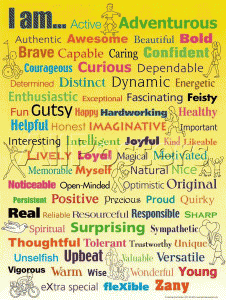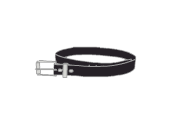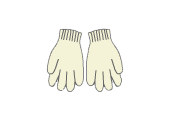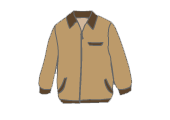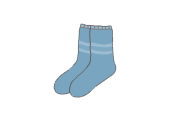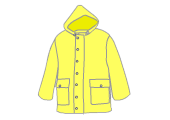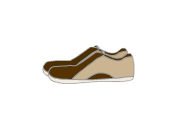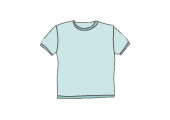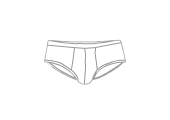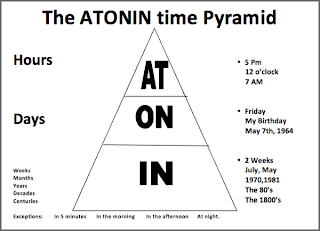Hoje é seu dia de sorte. Acabou de ganhar um carro novo! Você pode escolher o carro que quiser, mas precisa ser especifico. Qual cor será? Em que país foi feito? É um carro novo ou usado? Tem outras características notáveis?
Agora que você responde essas perguntas, você tem uma lista de adjetivos. Você pode ter respondido: azul, Americano, novinho e sexy (blue, American, brand new and sexy). Então isso significa que você tem azul, Americano, novinho, manual, carro sexy, certo? Errado.
Há uma ordem específica que os adjetivos seguem em Inglês e lista-los de qualquer outra forma seria estranho. A forma correta de ordená-los seria: a sexy brand new blue American car (um sexy, novinho, azul, carro americano).
Por que é incorreto dizer “blue, American, manual, brand new, sexy car” (azul, Americano, novinho e sexy) e “sexy, brand new, blue, American, manual car” (um sexy, novinho, azul, carro americano) é a forma correta? ”Aqui estão algumas regras simples para serem seguidas enquanto ordena os adjetivos.
A Ordem Correta
quando combinar mais de um adjetivo para descrever alguma coisa, a ordem que você coloca os adjetivos será a seguinte:
- Determinantes ou artigo
- Determinantes: exemplo: this, that, these, those, my, mine, your, yours, him, his, her, hers, they, their, Sam’s (este, aquele, esses, aqueles, seu, seus, ele, dele, ela, dela, eles, deles, do Sam) ; ou
- Artigos – a, an, the (um/uma, o/a)
Exemplo: That broken table needs a new leg. (Essa mesa quebrada precisa de uma perna nova)
- Adjetivo de opinião– Qual a sua opinião sobre o substantivo que está descrevendo?
ex. polite, fun, cute, difficult, hard-working (educado, divertido, difícil, esforçado/trabalhador)
Exemplo: He is an uncultured idiot who needs a geography lesson if he thinks Rio de Janeiro is the capital of Brazil. (Ele é um idiota sem cultura que precisa de uma aula de geografia se acha que o Rio de Janeiro é a capital do Brasil.)
- hight; ex: tall, short, high, low; taller, tallest (altura: alto, baixo, alto, baixo, o mais alto)
- width; e.g. wide, narrow, thin, slim; wider, widest (largura: ex: amplo, estreito, fino, magro; mais amplo que, o mais amplo)
- length; e.g. long, short; longer, longest (comprimento: ex: longo, curto, mais longo que, o mais longo)
- volume; e.g. fat, huge; fatter, fattest (volume: ex: gordo, enorme, mais gordo que, o mais gordo)
Exemplo: Charlie ate a huge piece of cake and got sick afterwards. (Charlie comeu um pedaço enorme de bolo e passou mal.)
- Shape – What shape is it? (Forma – qual é a forma?)
e.g. circular, oval, triangular, square, 5-sided, hexagonal, irregular (ex: circular, oval, triangular, quadrado, pentágono, hexagonal, irregular)
Exemplo: The box promised a round pizza, but it turned out to be square instead. (A caixa prometia uma pizza redonda, mas ao invés disso, veio uma quadrada)
- Age – How old is it? (Idade – Quantos anos você tem?)
e.g. new, young, adolescent, teenage, middle-aged, old, ancient (ex: novo, jovem, adolescente, pré-adolescente, velho, idoso)
Exemplo: The old car broke down yesterday on the freeway. (O carro velho quebrou ontem, na estrada.)
- Color – What color is it? (Cor – Qual é a cor?)
e.g. red, orange, yellow, green, blue, purple, white, grey, black, black and white, light blue, dark red, pale blue, reddish brown, off-white, bright green, warm yellow (ex: vermelho, amarelo, verde, azul, roxo, branco, cinza, preto, preto e branco, azul claro, vermelho escuro, azul pastel, marrom avermelhado, verde brilhante, amarelo forte, esbranquiçado)
Exemplo: You have to wear a greenwristband in order to gain entrance to the club. (você precisa usar uma pulseira verde de pulso para conseguir entrar na boite.)
- Origin – Where does it come from? (Origem – De onde você é?)
e.g. Brazilian, Chinese, English, American, Canadian, Japanese (Brasileiro, Chinês, Inglês, Americano, Canadense, Japonês)
Exemplo: Brazilian families love to travel to the US to go shopping. (As famílias Brasileiras ama viajar para os EUA para fazer compras.)
- Religion – Does it pertain to a particular religion? (Religião – Pertence a uma religião em especial?)
e.g. Buddhist, Taoist, Christian, Moslem, pagan, atheist (ex: Budista, Taoísta, Cristão, Muçulmano, Pagão, Ateu)
Exemplo: Buddhist monks shave their heads. (Os monges budistas raspam suas cabeças)
- Material – What is the object made out of? (Material – De que material esse objeto é feito?)
e.g. wood, plastic, metal, ceramic, paper, silk (ex: madeira, plástico, metal, cerâmica, papel, seda)
Exemplo: Being shot by a rubber bullet hurts less than being shot by a metalbullet. (Tomar um tiro com uma bala de borracha dói menos do que tomar um tiro com uma bala de metal)
- Purpose – Describes what something is used for. Often ends in “ing” (Propósito – Descreve a função de uso de um objeto. Frequentemente termina em “ing”)
e.g. campus (as in ‘campus activities’), physics (as in ‘physics teacher’), sleeping bag, rocking chair, baseball hat. (ex: campus- como em “atividades dos campos” – física – professor de física, saco de dormir, cadeira de balança, boné de baseball)
Exemplo: I like to wear cowboy boots when I dance Sertanejo music. (Gosto de usar botas de caubói quando dança música sertaneja.)
Nota de Estilo
Normalmente não usamos do que três adjetivos antes de um substantivo, mas essa não é uma regra fixa. Caso soe um pouco estranho, tente formar usar palavras com uma ordem diferente. Por exemplo, a frase seguinte deve ser reformulada:
“Derek is a handsome, intelligent, tall, brown eyed, Buddhist, young American.” (Derek é um jovem Americano, lindo, inteligente, alto e com olhos castanhos, Budista.)
Para manter o mesmo nível de descrição sem parecer estar usando muitas palavras, essa frase pode ser reescrita como:
“Derek is a handsome, intelligent young man with brown eyes from America who believes in Buddhism.” (Derek é um jovem Americano, lindo, com olhos castanhos que acredita no Budismo)
Prática
Reescreva as seguintes frases usando os adjetivos em azul. Certifique-se de coloca-los na ordem correta.
- Aunt Maria wants a table. (new, kitchen, wooden) (Tia Maria quer uma mesa – nova, cozinha, madeira)
- Carlos took a trip. (2-week, exhausting) (Carlos fez uma viagem – duas semanas, exaustiva)
- These are brownies. (chocolate, delicious, American, huge) (Esses aqui são brownies – chocolate, deliciosos, Americanos, enorme)
- Fabio prefers cars. (German, reliable, red) (Fábio prefere carros – Alemães, confiáveis, vermelhos)
- John wants to buy a suit. (tailored, Italian, hand-crafted) (John quer comprar um terno – customizado, italiano, feito a mão)
- I want a girlfriend. (French-speaking, beautiful, red-headed) (Eu quero uma namorada – Francesa/ Que fale Francês, linda, ruiva)
- The Johnsons just bought a house. (3-story, stone, funny-looking) (Os Johnsons acabaram de comprar uma casa – três andares, de pedra, engraçada)
- The cat brought in an animal. (rotten, smelly, gross) (O gato trouxe um animal para dentro – podre, fedido/mal cheiroso, nojento)
- My shoes broke. (high-heeled, green, favorite) (Meus sapatos quebraram – salto alto, verde, favorito)

